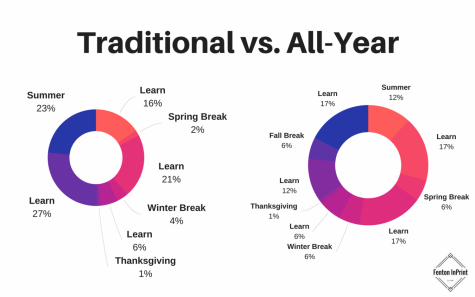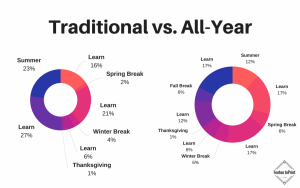Opinion: Students’ statistics should not define them
May 23, 2019
They start off as simple questions like, “hey, what’d you get on your SAT?” or “what’s your GPA?”, but all of these questions, while they may seem innocent, are an added stress that some high school students don’t need. There are many other things a high school student may have weighing on their shoulders, like work or social life, that may restrict them from constantly working on their college application requirements.
The pressure to attend college forces us to constantly worry about SAT and GPA scores, as well as other things that may impact someone’s “college chances”. We are constantly reminded about the requirements for our ideal schools, some of which won’t even calculate our elective grades into our GPA, as they may deem them unimportant. Teachers constantly remind students to “make sure you’re aware of the admission requirements for your college and choose one that is academically right for you!”
With programs like parchment around, it’s almost impossible to run from colleges, with them constantly reaching out through programs. Most students are required to sign up for collegeboard/parchment and input their information. Parchment is a transcript-sending service which allows students to add their scores and credentials and decide whether or not they want colleges to view and send recruiting emails. Another feature of parchment allows users to see a computer-calculated percent chance of them getting into their college of choice. So being able to play around with your SAT and GPA on your profile, you can see what statistics you need to be accepted into your choice college. This creates an urgency, as many students will think along the lines of “wow I need a 1400 on my SAT to have a 98% chance to get into MSU.”
Not only does this create a constant worry in the back of our heads about GPA, but the stress that is added on juniors before taking the SAT is completely unfair. Why can’t we just do our best? Why is our intelligence organized by numbers? How can we continue to strive for our future career if we’re more worried about our grades in core classes than we are learning about our future career? These are all things that need to be addressed and revamped.
We can get straight A’s in our elective classes that directly relate to the career we’re going to pay to go study, but if we aren’t doing well in our core classes, then it can jeopardize our chances of being able to get a reliable degree from the college that we want to go to. It seems like students these days are pushed more toward being perfect in their core classes than they are their career choice classes. Even if someone isn’t taking classes directly related to their career, they shouldn’t be punished.
Personally, I think colleges should take into account what career an applying student is pursuing, and exclude some of their core classes if need be. If someone is trying to be a lawyer, why do they need a perfect grade in their base level Biology class? They don’t. And a future lawyer shouldn’t be worried about their science grade when they are averaging A’s in their law or social studies classes.
The needed revamps of the college acceptance system will more than likely never come to pass, at least not in the near future of anyone reading this. However, something definitely needs to be done in order to reduce the stress on students caused by these pressures, whether that is by revamping the system, and/or allowing some leeway for these grades.











